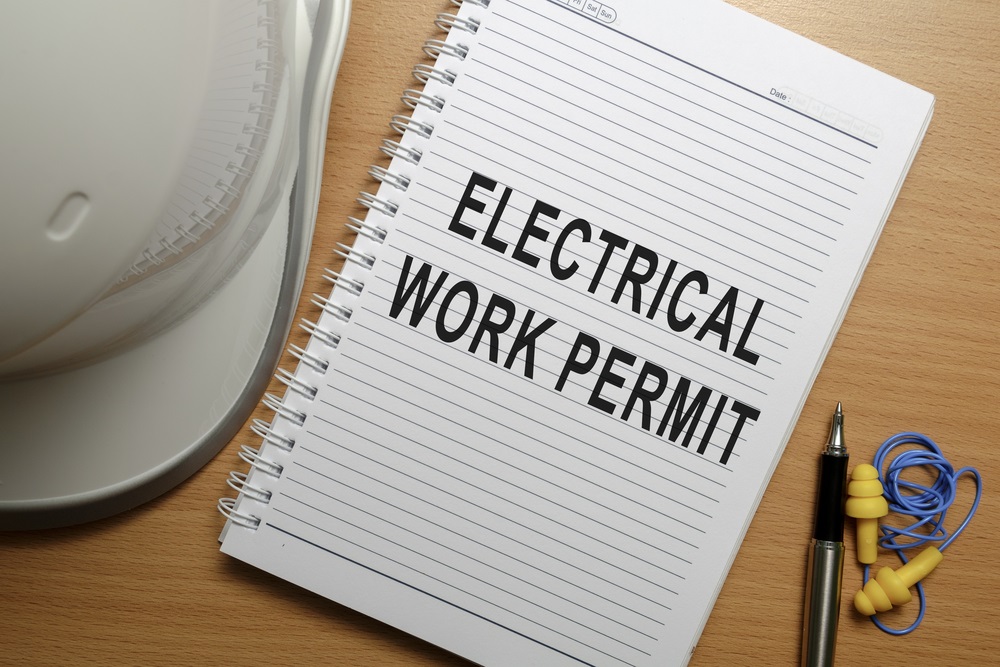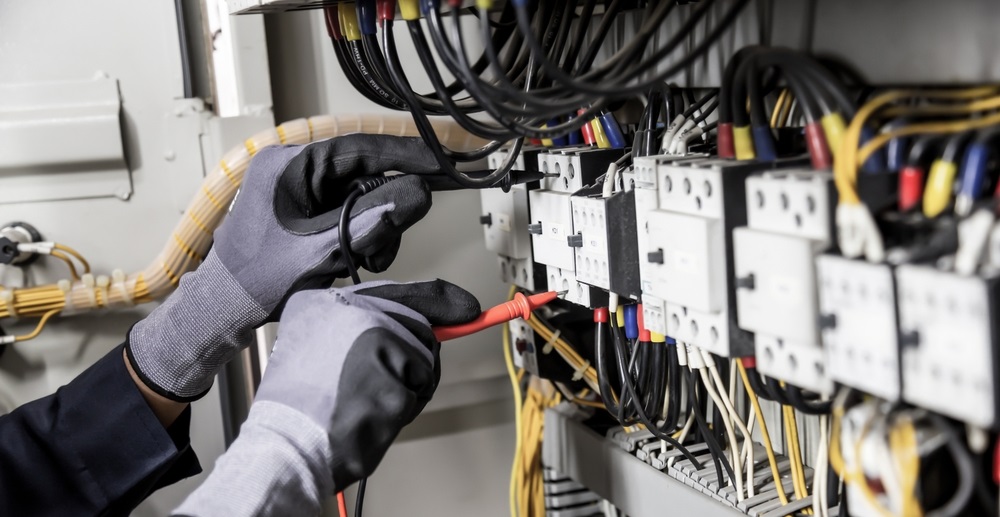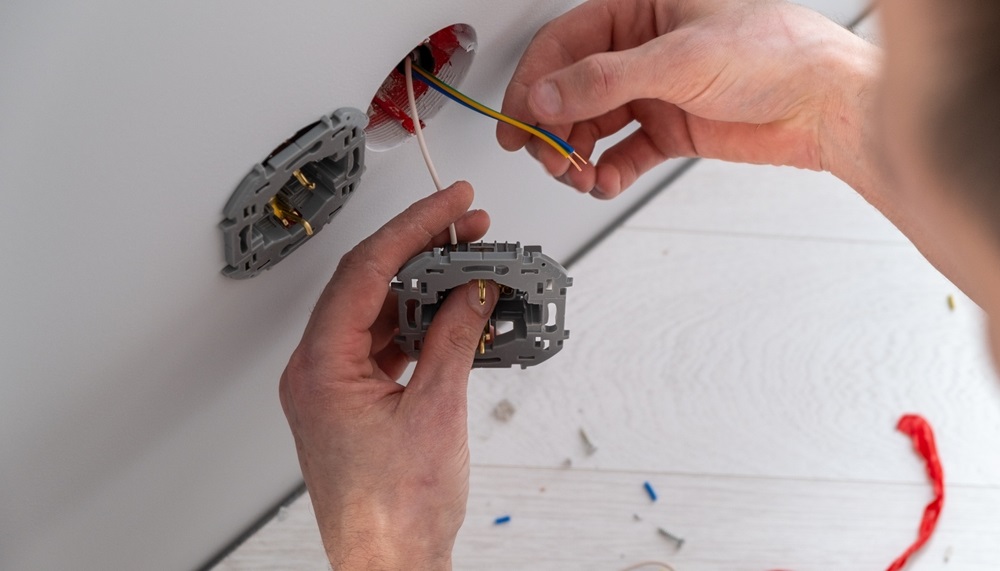Understanding Permit-Free Electrical Work
Many homeowners and business owners are eager to make electrical upgrades, whether to improve functionality, enhance safety, or boost energy efficiency. However, the question of permits often arises—what can you legally do without one?
The good news is that some minor electrical tasks don’t require a permit, allowing you to make simple improvements without bureaucratic delays. However, working with electricity carries risks, and even small mistakes can lead to fires, electrical shocks, or code violations. That’s why, for anything beyond basic tasks, hiring a licensed electrician ensures safety and compliance.
At Pelican Coast Electric, we specialize in safe, code-compliant electrical work for homes and businesses. Whether you’re planning small electrical changes or a full system upgrade, we’re here to help.

Electrical Projects That Typically Don’t Require a Permit
While permit regulations vary by state and county, the following electrical projects are usually permit-free under most building codes.
1. Replacing Electrical Fixtures
Swapping out an old light fixture, ceiling fan, or wall sconce for a new one is generally considered a minor update that doesn’t require a permit. However, this applies only if you are not altering wiring or moving the fixture’s location.
If you’re installing a chandelier or high-wattage fixture, you might need to check if your existing wiring can handle the load.
2. Replacing or Installing Switches & Outlets
Simple replacements—such as swapping out an old light switch or replacing an existing outlet—usually don’t require approval. However, certain upgrades, like installing GFCI (Ground Fault Circuit Interrupter) outlets in kitchens, bathrooms, or outdoor spaces, might require a permit in some areas.
Tip: If you’re switching from a traditional light switch to a smart dimmer or smart home system, you may need to check your wiring setup.
3. Installing Low-Voltage Wiring
Low-voltage electrical systems, like those used for security cameras, doorbells, thermostats, and internet wiring, often don’t require a permit because they pose minimal risk. However, if running new cables through walls or ceilings, some jurisdictions may require approval.
Tip: Always ensure that low-voltage wiring does not interfere with high-voltage electrical systems to prevent interference or safety hazards.
4. Minor Electrical Repairs
Small fixes—such as repairing a frayed cord, replacing a faulty breaker, or tightening loose connections—are typically considered maintenance tasks and don’t require permits. However, repairs that involve rewiring, replacing electrical panels, or modifying circuits almost always require approval.
Tip: If you’re frequently experiencing tripped breakers or flickering lights, these could be signs of a bigger electrical issue. Call Pelican Coast Electric for an inspection.
5. Plug-and-Play Electrical Installations
Many electrical appliances, including window air conditioners, portable heaters, surge protectors, and extension cords, do not require permits as long as they are properly rated for your existing outlets. However, if you need to install a dedicated circuit for a high-powered appliance (like an EV charger or a home generator), a permit is usually required.
Tip: Overloading outlets with too many devices can create fire hazards. Consider installing dedicated circuits for high-energy appliances.

When Do You Need an Electrical Permit?
Although some electrical work can be done without a permit, many projects require one to ensure safety and compliance. Some situations where a permit is mandatory include:
- Installing new electrical circuits – Adding new wiring to your home or business.
- Upgrading your electrical panel – Increasing amperage or replacing a panel.
Running wiring through walls, floors, or ceilings – Any concealed wiring requires inspection. - Installing outdoor or underground electrical systems – Exterior lighting, power to detached garages, or underground wiring.
- Work near water sources – Electrical projects in kitchens, bathrooms, or outdoor areas near pools.
If your project falls into one of these categories, it’s crucial to follow permit laws. Not only does skipping permits put you at risk for fines, but it can also create hazards that impact your insurance coverage and home value.
Read more: What Are the Electrical Panel Labeling Standards?
Why Hiring a Licensed Electrician is the Smart Choice
Even if a project doesn’t require a permit, electrical work is never truly risk-free. Incorrect wiring can lead to electrical fires, power surges, or long-term damage to your home’s system.
Here’s why hiring a professional electrician—like the experts at Pelican Coast Electric—is always the safest option:
✔️ Safety First
Handling electrical work without proper training can lead to electrocution or fires. Professionals follow strict safety protocols to eliminate these risks.
✔️ Code Compliance & Insurance Protection
Did you know that DIY electrical mistakes can void your home insurance? If an unpermitted or improperly installed system causes damage, your insurer may refuse coverage. Hiring a licensed electrician keeps your home up to code.
✔️ Reliable, Long-Lasting Work
Professional electrical installations are built to last, reducing the need for costly future repairs. At Pelican Coast Electric, we use high-quality materials and advanced techniques to ensure your electrical system operates efficiently.
Need Expert Electrical Work? Contact Pelican Coast Electric Today!
If you’re unsure whether your project requires a permit, don’t take chances. Pelican Coast Electric is here to provide expert guidance, safe installations, and top-tier service.
Call us today at (949) 989 4404
We’ll help you with everything from small repairs to major electrical upgrades—all while keeping your home or business safe and compliant.

FAQ: Electrical Work & Permits
Can I Install a New Light Fixture Without a Permit?
Yes, if you’re simply swapping out an existing fixture. However, if you need to add wiring or relocate the fixture, a permit may be required.
Yes, if you’re simply swapping out an existing fixture. However, if you need to add wiring or relocate the fixture, a permit may be required.
Is It Safe to Do DIY Electrical Work Without a Permit?
Minor work, like replacing switches or outlets, can be safe if done correctly. However, incorrect wiring can cause shocks, fires, or damage to your electrical system. When in doubt, hire a professional.
What Are the Risks of Not Getting an Electrical Permit?
Skipping required permits can lead to:
❌ Fines from local authorities
❌ Failed home inspections (which can delay home sales)
❌ Voided insurance coverage
❌ Potential safety hazards
How Can I Find Out If I Need a Permit?
Permit rules vary by location, so it’s best to check with your local building department or consult a licensed electrician like Pelican Coast Electric for expert advice.
Conclusion
While some electrical work can be done without a permit, it’s essential to know when to DIY and when to hire a pro. Cutting corners can lead to costly mistakes, safety risks, and even legal issues.
At Pelican Coast Electric, we’re committed to safe, high-quality electrical services that keeps your home or business running smoothly.
Contact us today to schedule an appointment! Whether it’s a small upgrade or a major project, our licensed electricians ensure your electrical system is safe, efficient, and fully code-compliant.

